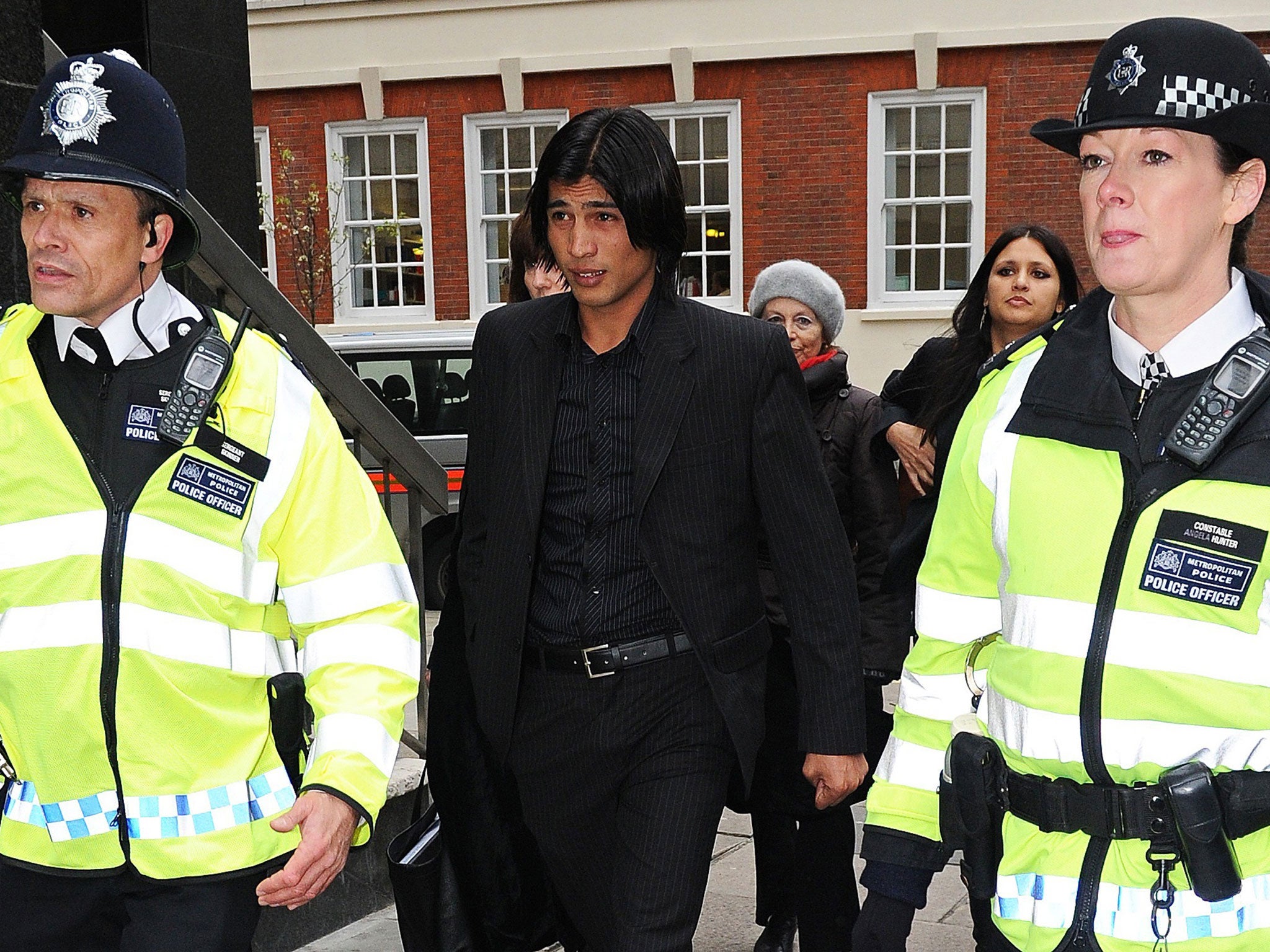Mohammad Amir spot-fixing ban ends early, allowing disgraced bowler to return to Pakistan
The 22-year-old was jailed and banned from the sport for five years

Mohammad Amir, the convicted spot-fixer, has been cleared for an early return to domestic cricket in Pakistan by the International Cricket Council.
Amir, 22, was jailed and banned from the sport for five years for his part in a spot-fixing scandal during his country's 2010 tour of England.
The prodigiously talented seam bowler, who delivered pre-arranged no-balls at Lord's as part of a plot involving Mohammad Asif and Pakistan captain Salman Butt, was not due to play again until September 2.
But after a meeting of the ICC Board in Dubai, it has been announced that the governing body, the PCB, and anti-corruption chief Sir Ronnie Flanagan had approved his domestic availability with immediate effect.
An ICC statement read: "The ACSU chairman, Sir Ronnie Flanagan, with the prior approval of the ICC Board and the Pakistan Cricket Board, has exercised his discretion to allow Mohammad Amir to return to domestic cricket played under the auspices of the Pakistan Cricket Board with immediate effect.
"Amir's five-year ban is scheduled to expire on 2 September 2015. The ACSU chairman had exercised the powers vested in him under Article 6.8 of the ICC Anti-Corruption Code after he was satisfied that Amir had cooperated with the ACSU by fully disclosing his part in the matters that led to his disqualification, admitting his guilt, showing remorse and cooperating with the unit's ongoing investigations and by recording messages for the ACSU education sessions."
In the aftermath of the spot-fixing scandal, Amir distinguished himself from his co-conspirators by admitting his guilt and showing remorse.
Asif and Butt repeatedly fought charges before being found guilty at Southwark Crown Court. The latter pair were also jailed, with Asif banned from cricket for seven years (two suspended) and Butt 10 years (five suspended).
With Pakistan's first-class season already at an end and the limited-overs President's Cup finishing early next month, Amir may have to wait some time for his first competitive cricket.
But the end of his ban allows him to make a full return to training and net practice, possibly overseen by the PCB, and even club cricket should the opportunity arise.
It also increases his prospects of an international recall against England, of all teams.
They take on Pakistan in a three-format tour of the United Arab Emirates in October, leaving Amir plenty of time to prove himself ready for selection.
Quite how that would go down with the likes of Alastair Cook, Stuart Broad, James Anderson, Eoin Morgan and Steven Finn - current England players who were on duty in that fateful Lord's Test - remains to be seen.
There is also a question mark over Amir's status within the Pakistan dressing room.
While the PCB have lobbied hard for his early return and clearly expect him to make a full comeback at the highest level, players who have performed cleanly in the shadow of his indiscretions and those of others, may be less inclined to share the field with Amir.
The issue is unlikely to disappear quietly.
Should Amir locate anything close to the form that made him the youngest bowler to take 50 Test wickets, he will be back centre stage soon enough and with the possibility of at least a decade of international cricket in front of him.
Join our commenting forum
Join thought-provoking conversations, follow other Independent readers and see their replies
Comments
Bookmark popover
Removed from bookmarks